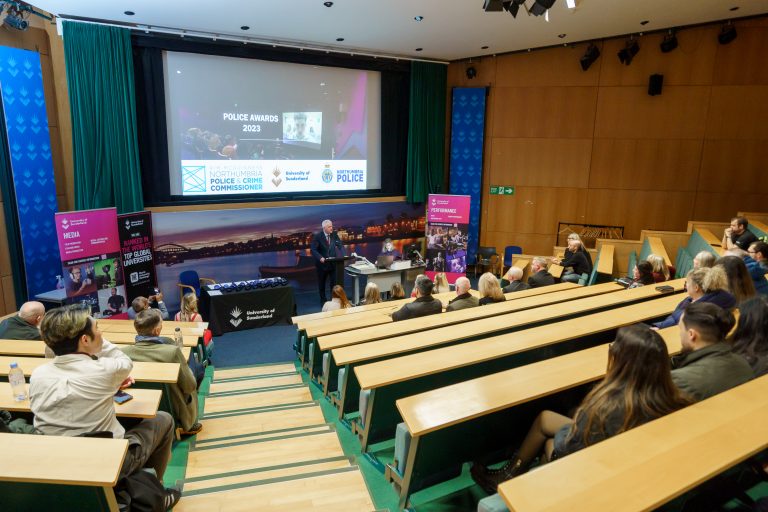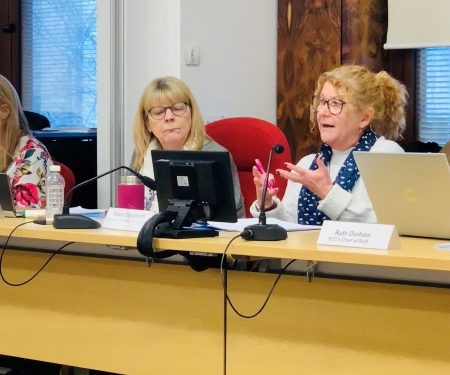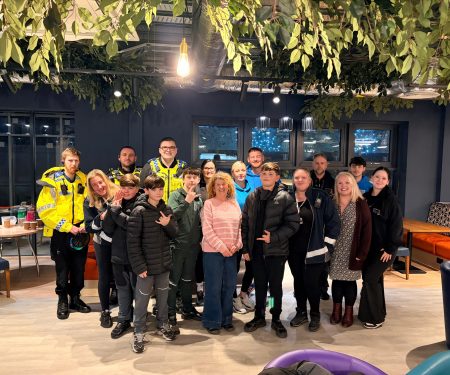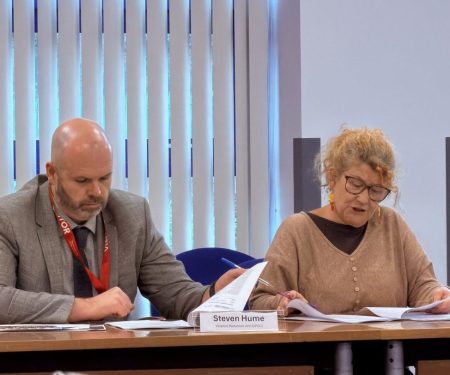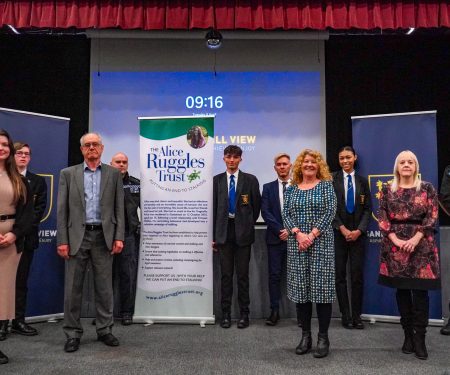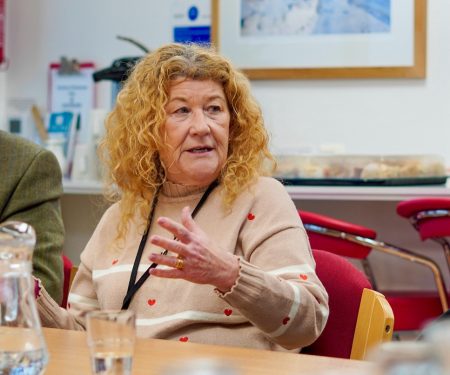Short films take a stand on violence towards women and girls
Violence against women and girls takes centre stage in a hard-hitting short film created by University students and shared across the UK.
This is the 10th anniversary of a film collaboration between Northumbria Police and Crime Commissioner and the University of Sunderland, raising awareness about issues impacting on society, through films created by final-year Screen Performance, Performing Arts and Film Production students.
The project is funded by Police Commissioner, Kim McGuinness’s office, and in collaboration with specialists from her Violence Reduction Unit.The students’ assignment subject this year is timely with a number of high-profile cases of toxic masculinity and misogyny – from serious sexual abuse to the role of online influencers – hitting the headlines and debated by commentators and government policymakers alike.
With 75% of women and girls as young as 12 experiencing some form of public sexual harassment and an estimated 1.6 million women in England and Wales experiencing domestic abuse, Northumbria Police and Crime Commissioner Kim McGuinness, wanted to draw attention to the issues, setting this year’s brief for the annual project.
For their assignment, the students were asked to focus on the behaviour and reactions of bystanders, in particular men, when they witness harmful or inappropriate behaviour committed against women and girls. Crimes of violence against women include rape and other sexual offences, stalking, domestic abuse, ‘honour-based’ abuse (including female genital mutilation and forced marriage and ‘honour’ killings), ‘revenge porn’ and ‘upskirting’, as well as many others.
Kim McGuinness said: “Not only as your Police and Crime Commissioner, but as a woman, I am passionate about fighting for a North East where our girls and women are safe and free from abuse, violence and inequality.
“With the numbers of violence against women and girls-related reports to police increasing each year, films that help raise awareness of the issues that are faced by women in Northumbria and beyond, are hugely welcomed by me. It’s on all of us to demand change in society and I’m thankful to the students for using their skills and creativity to help drive this change.”
The students produced the films with the help of the VRU and a specialist active bystander practitioner whose expertise is around engaging men and boys in conversations about violence against women and girls. They have researched, scripted, devised, filmed and edited all six films themselves which will contribute to their final-year marks. All productions are turned into an awareness film, to be used as an educational or training tool to promote awareness of the issues locally and regionally.
Other projects in previous years have addressed issues such as male rape, modern-day slavery, the capacity to consent, sexual exploitation, domestic violence, and cyber-crime.
An awards evening has also been organised on Thursday February 2, to announce the winning film, Choosing Silence and attended by the University’s Vice Chancellor, Sir David Bell, and the awards presented by Kim McGuiness.
Dr Adelle Hulsmeier, Senior Lecturer in Performing Arts and Programme Leader for Screen Performance, who helps to organise the awards each year, said: “It has, as always, been an incredibly interesting journey tackling more hard-hitting issues faced everyday by police.
“The issue of male violence against women and young girls demonstrated the types of conversation we need to be having and the responsibilities we need to be facing.
“At the start of the process, Northumbria’s Violence Reduction Unit delivered an eye-opening workshop that asked its recipients to face the realities around how this issue may start and grow. An important analogy was offered about how the roots of an issue can grow from something seemingly innocent, for example ‘banter’ between friends, into sexual harassment disguised as banter, to potentially branching out to something even more toxic, dangerous and potentially life-threatening.
“The point of the brief has been to place some responsibility on the bystander, to recognise the warning signs and to make an intervention, which doesn’t have to be direct, to stop the issue from growing. Cutting it off at the roots and really reflecting on at what point we intervene and at what point we can make a difference has been the continuous focus. The students have tacked this with gusto, determination and maturity, and we have six very strong contenders for this year’s awards.”
Nicholas Glean, Senior Lecturer in Video and New Media, responsible for producing the films with the students, says: “I am incredibly proud of our students for producing a good range of films on these essential issues. I must commend the students on their professionalism, dedication, and organisation. They should all be very proud of what they have achieved.”
The produced films can be viewed here.

Kim McGuinness, Northumbria Police and Crime Commissioner speaks during the Short Film Awards event at the University of Sunderland Picture: DAVID WOOD

